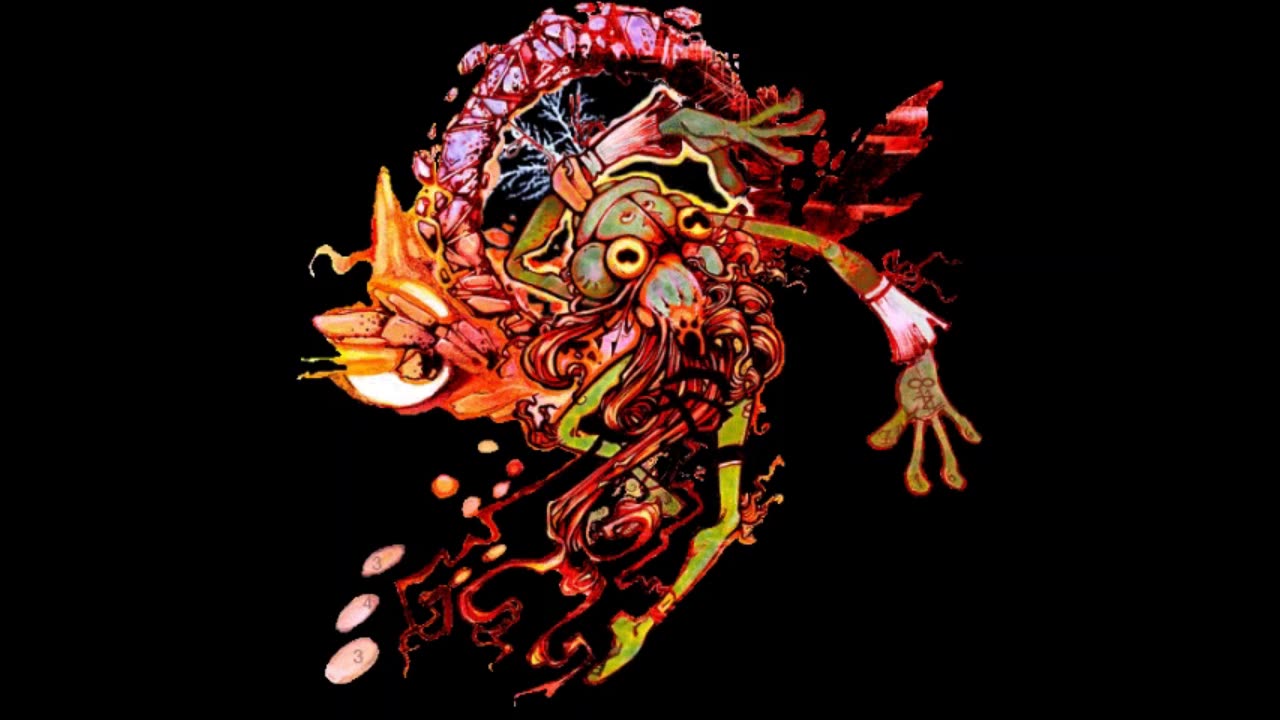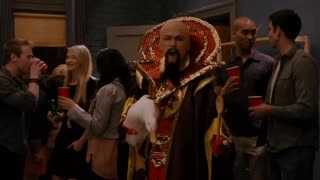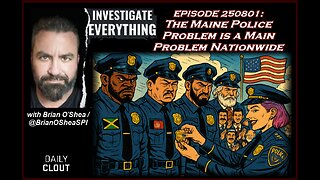Premium Only Content

Rock And Roll Hoochie Koo Rock Me Baby Highway 61 Revisited Johnny Winter
Rock And Roll Hoochie Koo Album: Johnny Winter And (1970)
Rock Me Baby Album: Still Alive and Well (1973)
Highway 61 Revisited Album: Second Winter (1969)
by Johnny Winter
"Rock and Roll, Hoochie Koo" is a song written by American musician Rick Derringer. It was first recorded in 1970 by Johnny Winter and his band Johnny Winter, of which Derringer was a member. In 1973 Derringer recorded a solo version, which was his only Top 40 chart hit as a solo artist in the U.S. It became a staple of 1970s classic rock radio and rock music compilations. Both Winter and Derringer have recorded multiple live versions of Rock And Roll Hoochie Koo.
Johnny Winter And is the fourth studio album by Texas blues guitarist Johnny Winter, released in 1970. Besides Winter, the group included guitarist Rick Derringer, bassist Randy Jo Hobbs and drummer Randy Zehringer, all former members of the McCoys. This was the first album released with Rick Derringer as a sideman. It was also the name of his band for a short time.
Rock And Roll Hoochie Koo is Track 4.
September 12, 2018, Sony Japan released a 13-song remastered version of Johnny Winter And with 2 bonus cuts.
Johnny Winter And
Johnny Winter – vocals, guitar
Rick Derringer – vocals, guitar
Randy Jo Hobbs – vocals, bass
Randy Zehringer – drums
Produced by Johnny Winter and Rick Derringer
Production assistants: Roy Segal, Edgar Winter
Engineering: Roy Segal
According to Derringer:
The first song I wrote for Johnny was 'Rock and Roll, Hoochie Koo'. 'Rock and Roll' to satisfy the rock 'n' roll that I was supposed to be bringing into the picture, and 'Hoochie Koo' to satisfy the king of blues sensibility that Johnny was supposed to maintain. And it worked out great.
However, Winter noted, "The reviewers liked it. I didn't think 'Rock and Roll, Hoochie Koo' would do as well as it did 'cause it was a little corny. Rock and Roll, Hoochie Koo. You don't ever know". The song is included on the Johnny Winter And album, which reached number 154 on the Billboard 200 album chart.
In 1970, they recorded the song during the Live Johnny Winter And tour, which was released as Live at the Fillmore East 10/3/70 in 2010. In a review of the album for AllMusic, Thom Jurek commented that "this one blows away the JWA [Johnny Winter And] studio version or Derringer's own hit single take", although he felt it did not measure up to the other songs recorded that night. Winter and Derringer later recorded the song with Winter's brother for Edgar Winter's White Trash live 1972 album Roadwork, described in an album review as a "rousing rendition".
Derringer's version of the song was included in the 1993 comedy film Dazed and Confused, and season 4 of the Netflix science-fiction horror television series Stranger Things in 2022.
Still Alive and Well was his fifth studio album, and his first since Johnny Winter And almost three years earlier. It was released by Columbia Records in 1973. Rock Me Baby is the album opener.
"Highway 61 Revisited" is the title track of Bob Dylan's 1965 album Highway 61 Revisited.
Highway 61 runs from Duluth, Minnesota, where Bob Dylan was born, down to New Orleans, Louisiana. It was a major transit route out of the Deep South particularly for African Americans traveling north to Chicago, St Louis and Memphis, following the Mississippi River valley for most of its 1,400 miles (2,300 km).
The song has five stanzas. In each stanza, someone describes an unusual problem that is ultimately resolved on Highway 61. In Verse 1, God tells Abraham to "kill me a son". God wants the killing done on Highway 61. This stanza refers to Genesis 22, in which God commands Abraham to kill one of his two sons, Isaac. Abram, the original name of the biblical Abraham, is the name of Dylan's own father. Verse 2 describes a poor fellow, Georgia Sam, who is beyond the helping of the welfare department. He is told to go down Highway 61. Georgia Sam may be a reference to Piedmont blues musician Blind Willie McTell, who occasionally went by Georgia Sam when recording.
In the third verse, "Mack the Finger" has the problem of getting rid of particular absurd things: "I got forty red white and blue shoe strings / And a thousand telephones that don't ring". "Louie the King" solves the problem with Highway 61. Verse 4 is about the "fifth daughter" who on the "twelfth night" told the "first father" that her complexion is too pale. Agreeing, the father seeks to tell the "second mother," but she is with the "seventh son," on Highway 61. The inspiration for this verse may be drawn from the enumeration pattern at the beginning of the Old Testament book of Ezekiel.
The fifth and last verse is the story of a bored gambler, trying "to create the next world war." His promoter tells him to "put some bleachers out in the sun / And have it on Highway 61." There is an evident political undertone in this absurd tale. There is a pause in each verse while Dylan waits for some event in the story to finish; in the third verse, for example, the pause occurs while Louie the King attempts to resolve the shoestring-and-telephones problem.
In 1969, Johnny Winter covered "Highway 61 Revisited" on his second Columbia release, Second Winter. Winter's rendition is regarded as "a career-defining track," and the song continued as a staple of his live performances. A 10-minute version of the song appears on his 1976 live album, Captured Live!, and he also performed it live in 1992 for The 30th Anniversary Concert Celebration album, which saluted Dylan's three decades as a recording artist.
Ex-Dr Feelgood guitarist Wilko Johnson included "Highway 61 Revisited" in his concert sets in the late 1970s and released a live recording of the song on an EP given away with his 1978 album Solid Senders. The recording now forms part of the album's CD release. In 1987, Dr Feelgood also covered the song for their album Classic, a track AllMusic describes as "utterly inspired."
The song has been recorded by PJ Harvey on her 1993 album Rid of Me. Paste magazine selected this version as the 15th best cover of a Dylan song of all time, while also paying homage to "Johnny Winter's classic electric-blues version."
-
 11:20
11:20
Psychological operations
2 days agoYour Party Buckingham Green The Rainbow Ween
271 -
 LIVE
LIVE
Dear America
1 hour ago🔥 DEMS ON THE RUN: Hunted, Arrested in Texas! Bondi DEMANDS Grand Jury for Russia Hoax!!
14,188 watching -
 LIVE
LIVE
JuicyJohns
1 hour ago $0.24 earned🟢#1 REBIRTH PLAYER 10.2+ KD🟢$500 GIVEAWAY SATURDAY!
175 watching -
 LIVE
LIVE
Matt Kohrs
11 hours agoMarket Open: Swings Incoming, Earnings Update & Breaking News || Live Trading
973 watching -
 LIVE
LIVE
Randi Hipper
16 minutes agoBITCOIN NEWS FROM RANDI'S NEW STUDIO
340 watching -
 LIVE
LIVE
The Mike Schwartz Show
11 hours agoTHE MIKE SCHWARTZ SHOW with DR. MICHAEL J SCHWARTZ 08-05-2025
4,193 watching -
 7:00
7:00
Rethinking the Dollar
11 hours agoCredit Card Defaults Just Hit 14-Year High | Are You Next?
3792 -
 LIVE
LIVE
Wendy Bell Radio
5 hours agoNowhere To Run
5,587 watching -
 1:37:47
1:37:47
Investigate Everything w/ Brian O'Shea
13 hours agoINVESTIGATE EVERYTHING EP250801:The Maine Problem with Policing is a Main Problem (PT1)
9481 -
 LIVE
LIVE
LFA TV
13 hours agoLFA TV ALL DAY STREAM - TUESDAY 8/5/25
6,295 watching